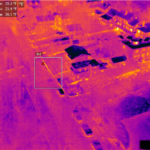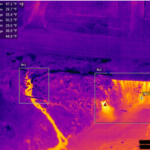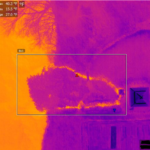Research and Development, Cold Spring Harbor, NY; Oyster Bay, NY (Mill River Subwatershed); Village of Laurel Hollow, NY; Village of Bayville, NY (Mill Neck Creek)
Walden, Harkin Aerial, and the Friends of the Bay applied for and received a grant from the Nassau County Soil and Water Conservation District to use drones to help the client improve water quality in several local bodies of water by mapping water infrastructure, detecting and locating possible illicit discharges in stormwater systems (MS4) and identifying previously unknown sources of discharge. The client, the Oyster Bay Cold Spring Harbor Protection Committee, was interested in using drones to detect illicit discharges, but their efforts were hampered by funding issues. The client approached our team to see if we were interested in pursuing grant funding for this work. Walden, Harkin Aerial, and the Friends of the Bay applied for a grant to provide funding for the project and were awarded the funds.
Recent developments in drone thermal imaging have been proven especially effective at identifying water quality issues and the team’s client wanted to use advanced technology to find the illicit discharges at five separate locations, two of which were within the Cold Spring Harbor Subwatershed. The others are the Mill River Subwatershed, the Laurel Hollow Subwatershed, and the Mill Neck Creek Subwatershed.
Walden worked to assist The Friends of the Bay/Oyster Bay Cold Spring Harbor to improve stormwater quality. This innovative project used Unmanned Aerial Vehicles (also known as drones) and aerial thermography in two primary areas of the Cold Spring Harbor Subwatershed to efficiently identify potential illicit discharges and assess existing hydrologic and water quality data collected in the Subwatershed.
Efficiently identifying heat differentials in the soil using aerial thermal imaging technology can pinpoint suspect illicit discharges, failing onsite wastewater treatment systems and other pollution sources, which can then be inspected and abated by local municipalities. Walden engineers reviewed drone footage and prepared reports on detected discharges and other relevant environmental conditions determined by the fieldwork, analysis, and field follow-up. Walden and Harkin Aerial have completed several MS4 studies to find illicit discharges using this innovative method.
Advanced imaging and processing technologies were used to produce over 13,000 images to investigate surface water quality by using thermal measures to detect relative differences in water temperatures. The use of drones provided the advantage for recognizing Points of Interest (POI) throughout the area of the watersheds. The Project was an opportunity to investigate the vulnerable coastal and inland areas for illicit discharges. There were POIs that were identified in the images, giving the communities the locations to follow up on potential pathways of discharge.
Walden and Harkin have demonstrated that it is possible to identify these potential illicit discharges in hopes of sufficiently accomplishing water quality and stormwater management for the Long Island Watersheds. Each of the POI was analyzed and given a priority score from one (1) to five (5). The priority score correlates with the suggested length of time that each POI should be monitored in the future.
This project was featured at the New York City Watershed Science and Technical Conference on September 9, 2021, in Bear Mountain, NY. The conference was sponsored by the New York Water Environment Association, the New York City Department of Environmental Protection, and the New York Department of State. The project was also featured at the 2022 Operation and Maintenance of Stormwater Control Measures Conference in Wilmington, NC, from March 13-16, 2022.
For related information, please review our Guide to Drones in Environmental Engineering: How Drones Are Mapping Sites, Improving Water Quality and Managing Infrastructure. Visit our blog, Industrial Stormwater Pollution in MS4 Areas, to learn more. For more information on projects such as these, please contact Walden today!
Walden can help your organization improve its stormwater management with respect to MS4, SWPPP, SPDES, and more. Walden is also active in many areas of innovation, research, and development of water quality, and environmental stewardship efforts to improve the communities of our region.



